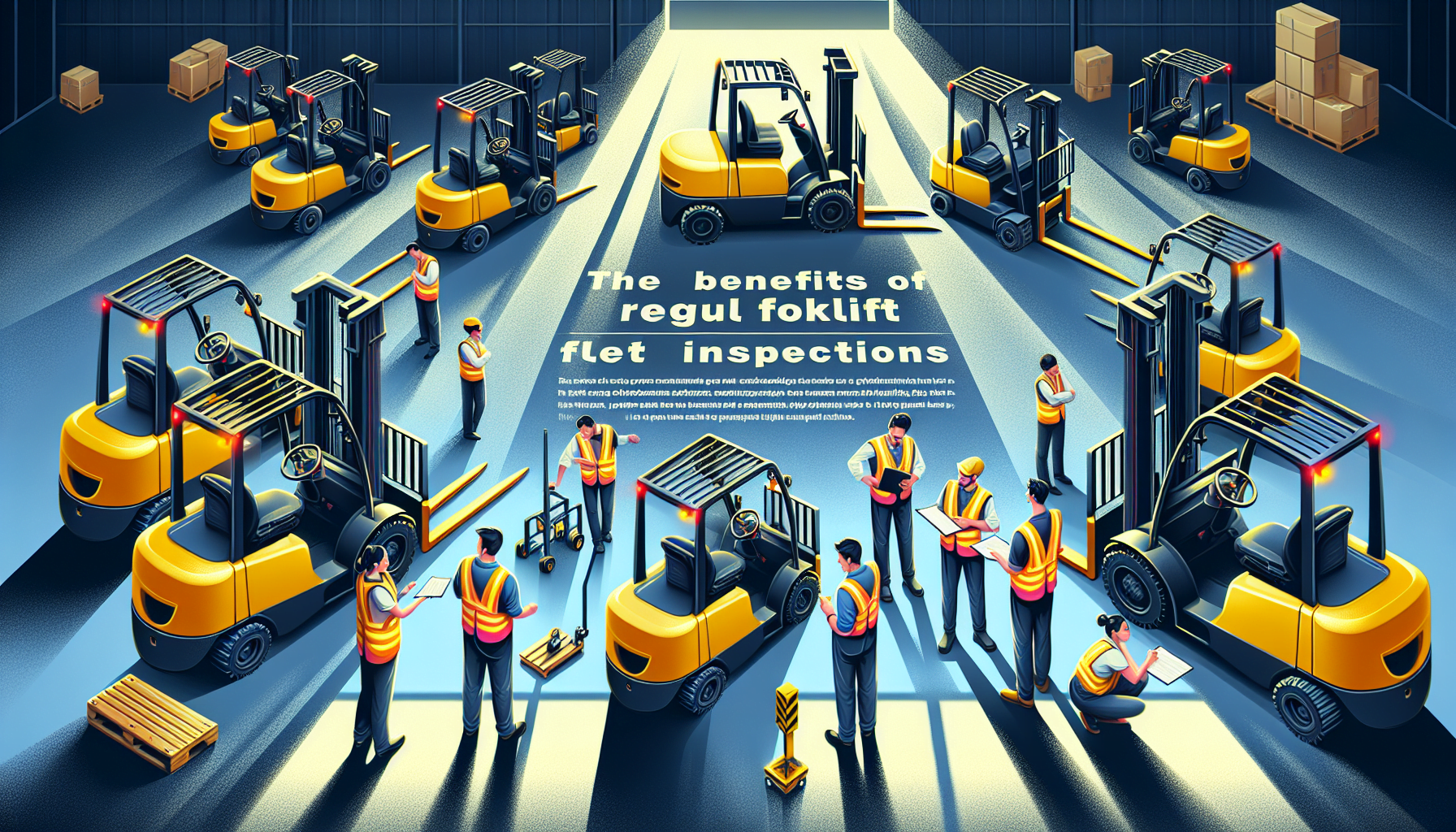Regular inspections are a crucial part of maintaining a safe and efficient forklift fleet. Not only do they ensure compliance with regulations, but they also help identify potential issues before they become major problems. In this article, we will explore the benefits of regular forklift fleet inspections and why they should be a priority for any business.
Improved Safety
The most important benefit of regular forklift fleet inspections is improved safety. Forklifts are powerful machines that can cause serious injuries or fatalities if not properly maintained. Regular inspections help identify any safety hazards or malfunctioning parts that could put operators and other employees at risk.
During inspections, trained professionals thoroughly examine various components of the forklift, such as brakes, tires, steering systems, and lifting mechanisms. They also check for any leaks, loose bolts, or worn-out parts. If any issues are detected, they can be addressed promptly, reducing the risk of accidents and injuries.
By prioritizing the safety of your forklift fleet through regular inspections, you create a safer work environment for your employees, minimize the potential for costly accidents or damage, and demonstrate your commitment to workplace safety.
Extended Lifespan of Forklifts
Regular inspections not only ensure the safety of your forklift fleet, but they also contribute to their longevity. By identifying and addressing potential issues early on, you can prevent small problems from turning into major breakdowns or costly repairs.
During inspections, technicians carefully examine the forklift’s engine, hydraulics, electrical systems, and other critical parts. They look for signs of wear and tear, assess fluid levels, and conduct necessary maintenance tasks like lubricating moving parts. This proactive approach helps keep the forklifts in optimal condition and minimizes the risk of unexpected breakdowns.
By prolonging the lifespan of your forklift fleet through regular inspections, you can save money on replacement costs and reduce downtime caused by unplanned repairs.
Compliance with Regulations
In many countries, forklifts are subject to specific regulations and standards regarding their operation and maintenance. Regular inspections are crucial for ensuring compliance with these regulations.
During inspections, technicians check if the forklifts meet all the applicable safety standards and regulations set by regulatory bodies. They verify that the forklifts have the necessary safety features and labels, such as audible warning signals, seat belts, and load capacity plates.
By conducting regular inspections, businesses can demonstrate their commitment to compliance and avoid penalties or fines for operating non-compliant forklifts.
Enhanced Operational Efficiency
Regular inspections can greatly contribute to the overall operational efficiency of your forklift fleet. When forklifts are in good working condition, they can perform at their best, resulting in increased productivity and reduced downtime.
During inspections, technicians may also provide feedback and recommendations for improving the performance of the forklift fleet. They can suggest adjustments to the operator’s practices or identify areas where additional training may be beneficial.
Addressing these recommendations can lead to smoother operations, improved productivity, and reduced fuel consumption. Ultimately, this can help businesses save costs and stay competitive in today’s fast-paced market.
Conclusion:
Regular forklift fleet inspections are essential for maintaining a safe and efficient workplace. The benefits of these inspections extend beyond safety and compliance to include improved longevity of the forklifts and enhanced operational efficiency. By prioritizing regular inspections, businesses can ensure the safety of their employees, minimize unexpected breakdowns, comply with regulations, and optimize their operations. To learn more about forklift fleet management and how it can benefit your business, check out HCO Innovations.

